Material World: Beyond Leather Materials Leaps Forward, Mycocycle Raises $3.6M
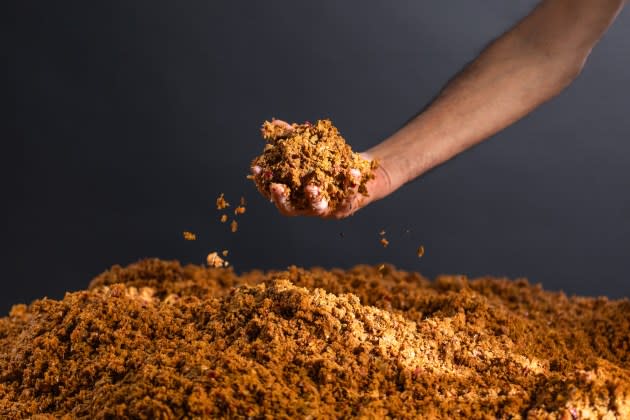
Material World is a weekly roundup of innovations and ideas within the materials sector, covering news from emerging biomaterials and alternative leathers to sustainable substitutes and future-proof fibers.
Beyond Leather Materials
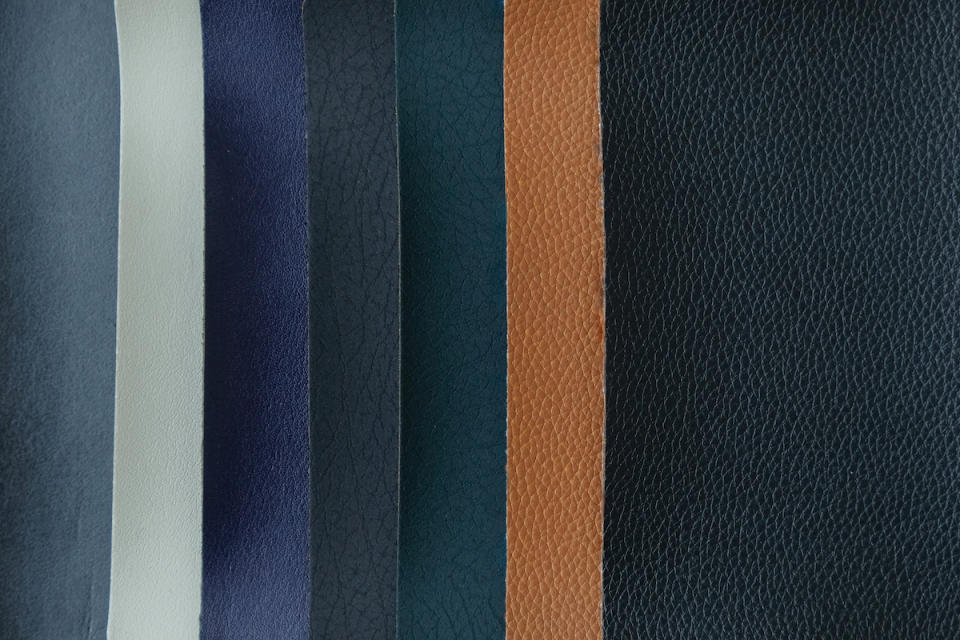
Beyond Leather Materials, the Danish producer and supplier of Leap—an alternative material to traditional leather crafted from European apple waste—announced a significant expansion in its manufacturing capabilities: the launch of the Copenhagen-based company’s first full-scale roll-to-roll production line in Germany. This development marks the commercial introduction of Leap.
More from Sourcing Journal
“Almost seven years of product development and intensive research and development have led us to this pivotal moment,” Mikael Eydt, co-founder and CEO of Beyond Leather Materials, said. “Leap represents a shift in how we view and utilize waste, transforming discarded materials into valuable resources. Leap stands as an example of how we can take a step further toward a more thought-through approach in material usage within industries often reliant on animal materials or purely synthetics.”
Leap—derived from LEftover APples—utilizes apple waste from apple juice and cider producers, converting that waste into a material that’s now 89 percent biobased. Each square meter of the material saves approximately 1.8kg (roughly 4 pounds) of apple pulp from landfills, the company said.
“By using apple pulp, we aim to contribute positively—helping apple juice and cider producers reduce their waste management costs and preventing apples from ending up in landfills,” Eydt said. “This approach allows us to craft an innovative alternative to animal-based materials.”
Over the past years, Beyond Leather Materials has been in contact with over 3,000 potential customers, Eydt continued, who have tested Leap “extensively” across industries. This new production line not only increases the firm’s capacities but also “enhances” its ability to innovate and serve multiple markets.
“With the capability to produce more than 100,000 square meters of Leap in the first year alone, this expansion signifies a great advancement for us,” Eydt said, noting that, after years of dedicated product development—and with the new production line running in Germany—Beyond Leather Materials can now produce Leap on 1.5-meter-wide and 25-meter-long rolls. “This is a huge step as it means that we can produce the same dimensions as the textile industry uses today.”
Mycocycle
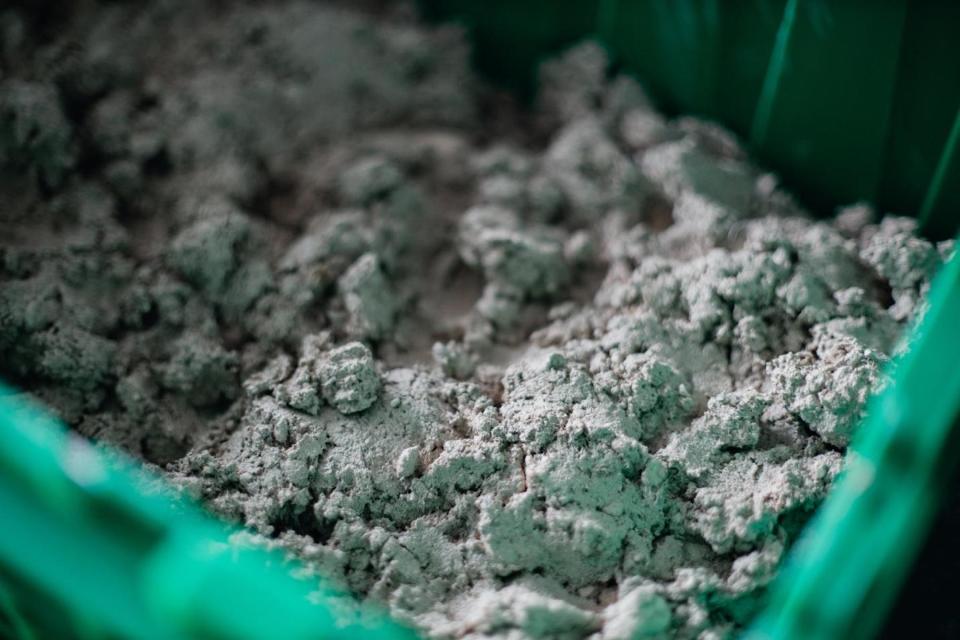
Mycocycle recently announced an oversubscribed $3.6 million seed extension funding round, bringing the total funding raised by the biotechnology company that uses mushrooms to create new materials to $7.3 million.
Closed Loop Partners’ Ventures Group led the round with follow-on investment from the Telus Pollinator Fund for Good and participation from U.S. Venture, Inc. and the Illinois Department of Commerce and Economic Opportunity Invent Fund.
“Mycocycle embodies Closed Loop Partners’ advancement of a truly circular economy and paints the vision for how rapid decarbonization of the construction supply chain can be profitable for companies today,” said Aly Bryan, an investor at Closed Loop Partners’ Ventures Group. “We are excited to partner with the Mycocycle team in the next phase of growth for the business and to ultimately enable more circular and local processing and production technologies for materials in the built world.”
Mycocycle said it will use the funding to “deepen relationships” with existing partners for waste materials, further scale its waste-to-value chain, and make “key leadership hires” for the marketing, technology and operations teams.
“Mycocycle helps decarbonize the construction material supply chain through a cost-effective, sustainable process that produces useful raw material for the building industry,” said Joanne Rodriguez, founder and CEO of Mycocycle. “Further, the unique characteristics of mycelium lead to materials that are lightweight, thermally insulating, fire-retardant and water-repellent.”
Awwa
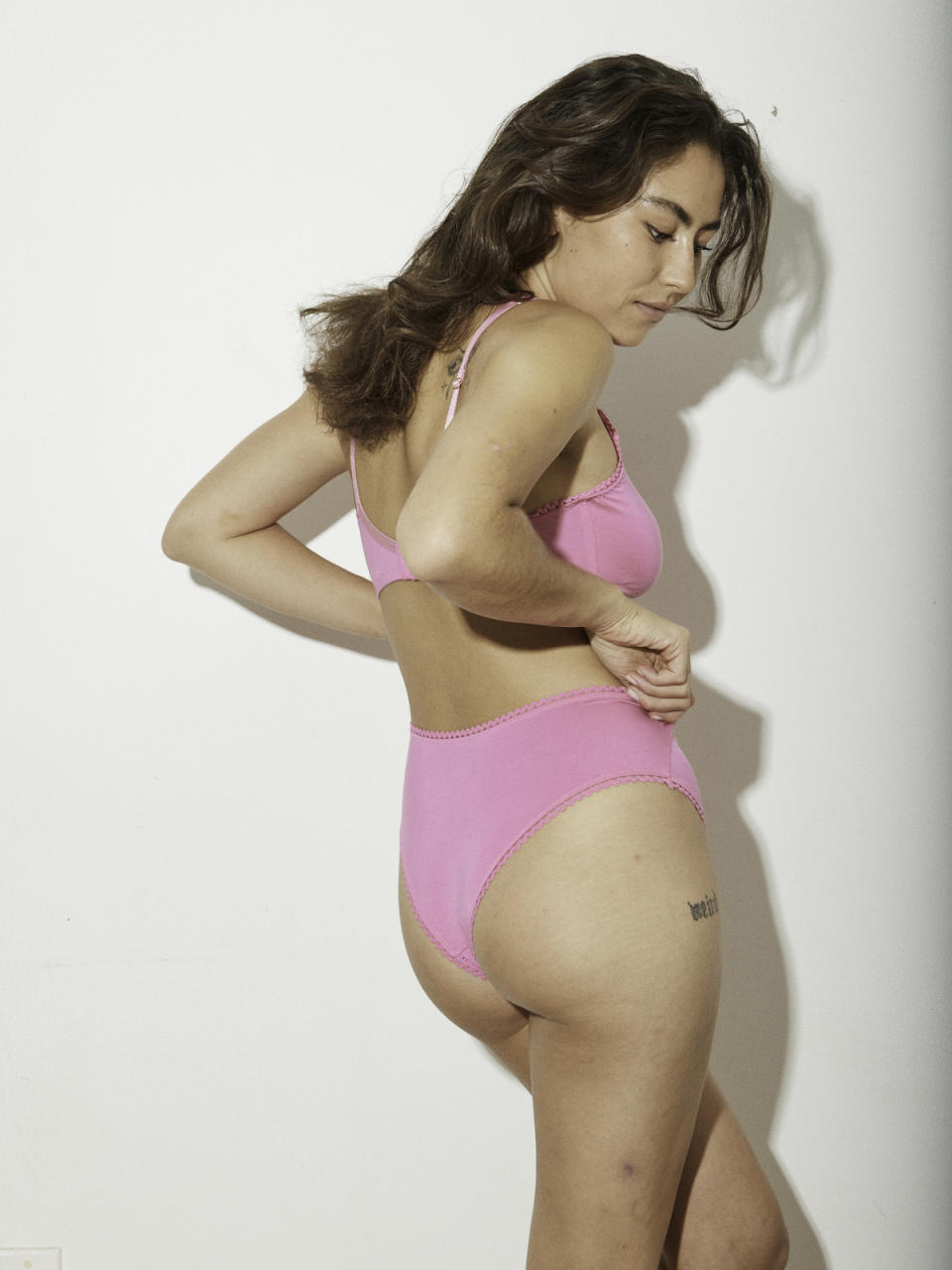
New Zealand period lingerie brand Awwa is launching in the United States. Founded by Michele Wilson and Kylie Matthews, the brand is inspired by Wilson’s indigenous Māori culture. The launch comes after research and testing to ensure the garments were “above standards” concerning safety and sustainability in the period underwear space.
“The word ‘awwa’ is derived from the Māori word ‘awa’ meaning river or flow. Māori referred to their period as te awa auta—the divine river, and this is the foundation of the brand,” Wilson said. “Our goal is to offer a world where every person can feel divine and empowered during their period.”
The female-founded B Corp had Dr. Graham Peaslee of Notre Dame—a leader in PFAS research who found forever chemicals in Thinx in 2020—test 12 different fabrics, all of which are used in the various styles of Awwa underwear. The results concluded that Awwa is “non detectable” for PFAS.
“We are so thankful for the success that Awwa has had in New Zealand, given all of the important conversations that have surrounded period underwear and period care in recent years,” Matthews said. “As we launch in the U.S. market, it’s our goal to be a leader by taking the steps to assure our underwear is what we’ve always known it to be: safe and sustainable.”
Fair Harbor
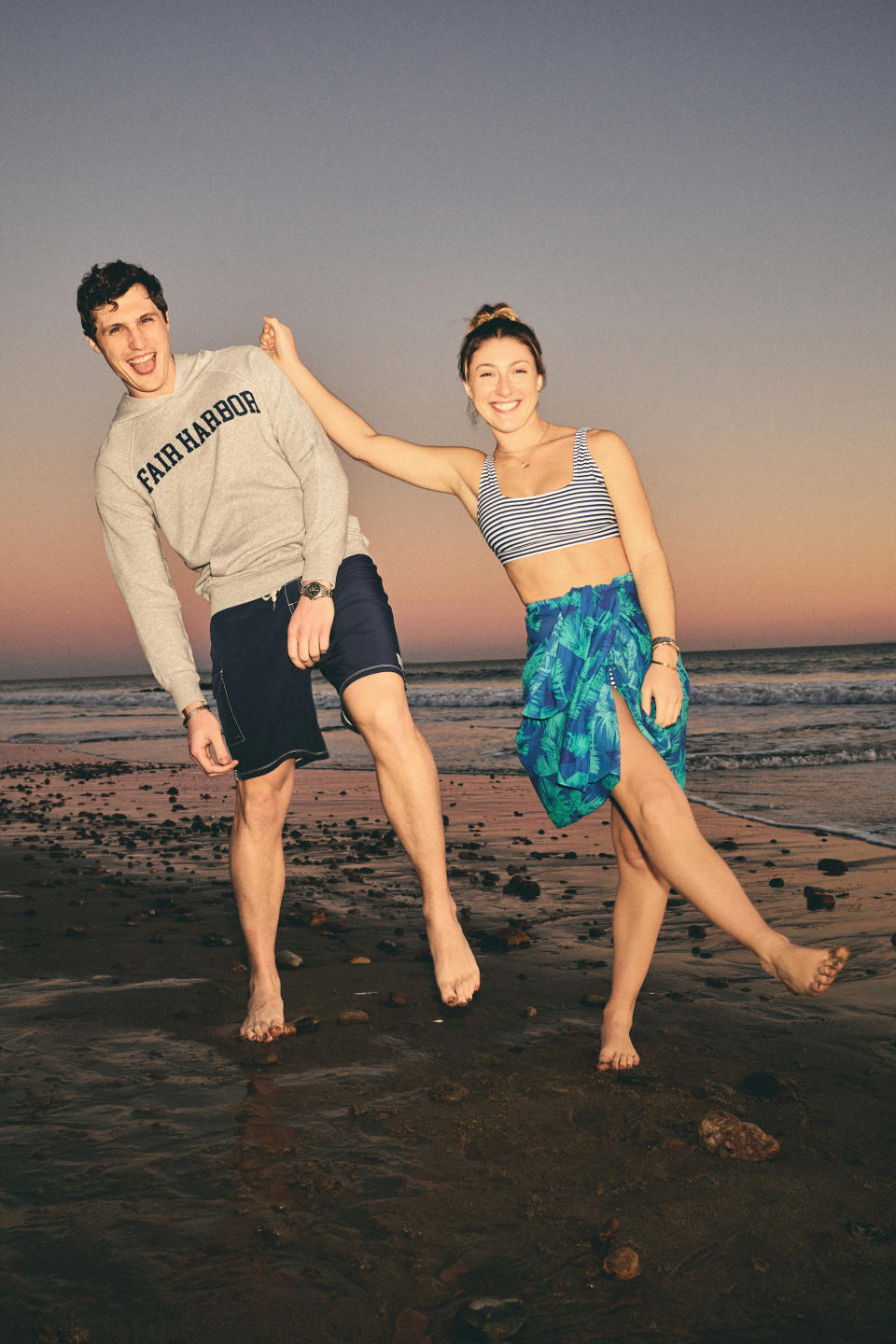
Sustainable coastal lifestyle brand Fair Harbor is celebrating its 10th anniversary this month. Since launching in 2014, the beachwear brand founded by siblings Caroline and Jake Danehy has transformed over 35 million plastic bottles into fabric for their apparel. The B Corp is releasing an exclusive anniversary collection to mark the milestone.
“Improving the environment has always been a priority for me,” Caroline Danehy, co-founder and chief brand officer, said. “Looking back, it’s been an incredible journey that started in our parent’s garage a decade ago and evolved into a thriving, sustainable business that has made significant steps in protecting the planet. And we feel like this is just the beginning of what we can accomplish.”
The limited-edition capsule is inspired by the siblings’ “early days” on Fire Island with their family. The “nostalgic” 27-piece swim, shorts, T-shirts and hoodies collection debuts eight new sustainable styles. Highlights include the Marina shirt, made with Lenzing’s Ecovero fabric made from wood, and the brand’s first women’s swim collection, which is made from recycled nylon.
“Each new season explores reinterpretations of classic silhouettes in innovative, low-impact materials,” said co-founder and chief executive officer Jake Danehy. “We’re always looking for the most responsible production partners and the most creative sustainable solutions. Our 10th-Anniversary Collection continues to push this mission forward.”
Fair Harbor designs all its clothing from earth-friendly fabrics like organic cotton, Seawool made from oyster shells, Tencel derived from wood pulp, organic linen, recycled nylon and its “signature” recycled polyester. “So far, Fair Harbor has repurposed more than 35 million plastic bottles into our ultra-comfortable lifestyle apparel, but our goal is to double that number in the next three years,” Jake Danehy continued. “We’re proud to celebrate a decade of protecting the places we love from plastic pollution and can’t wait to make an even greater impact.”
Solve the daily Crossword

